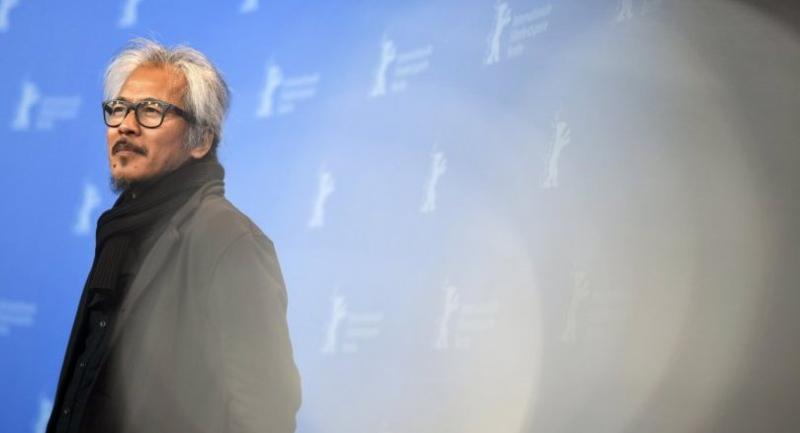Looking at the past, learning for the future

Lav Diaz looks back at The Philippines under martial law during the 1970s and draws parallels with today in his latest film "Season of the Devil"
One of the world’s most important film events, the Berlin International Film Festival brought down the curtain for another year at the weekend after an enthralling 10 days of movies from all over the world.
Rookie female director Adina Pintilie from Romania took home the Golden Bear for her film “Touch Me Not”, which explores intimacy and sexuality among various people. The film also picked up the Best First Feature Award.
The Grand Jury Prize was awarded to another female filmmaker, Poland’s Malgorzata Szumowska for her latest feature “Mug”. Wes Anderson landed the Best Director Award for his latest stop-motion animation “Isle of Dogs”.
While it didn’t take home any awards, Lav Diaz’s latest film, the 230-minute-long “Season of the Devil” did win a great deal of critical acclaim. It also marks a departure in style for the Filipino auteur: “Devil”, he says, is a rock opera, albeit one without any musical instruments.
“When I make films, I never think of duration. The length of the film comes from the editing,” says Diaz of his latest oeuvre, which clocks in at slightly less than half the running time of “A Lullaby to the Sorrowful Mystery”, the eight-hour work shown in Berlin back in 2016. Still, ‘Season of the Devil’ is almost four hours long, with long takes, and in black and white, which is not an easy style for the general audience to appreciate.
“Season of the Devil” takes the audience back the Philippines in the late 1970’s, when the country was under martial law imposed by President Ferdinand Marcos. Based on a true story and set in a remote village under military oppression, it shows how many characters who try to defy power of the military meet an unfortunate end.

“I asked Hazel to play a male soldier. This is part of the concept. The film is also conceptual. There’s also the ‘Janus Face’ guy, whose name is Chairman Narciso. He is a character that represents dictatorship. The character only sees himself,” says Diaz cryptically, referring to the casting of his regular actress Hazel Orancio as a military man who rapes women and tortures those who defy the military’s power. Filipino star Shaina Magdayao plays Lorena, a beautiful doctor who opens a clinic for poor people, but is later abducted by the military, while heartthrob actor Piolo Pascual portrays Hugo Haniway, Lorena’s husband, who is determined to find out what has happened to his wife.
“The songs have been around for a while and it’s good I can use them this time,” Diaz explains. “I wrote a lot of songs in the last quarter of 2016 so they were there when we entered the pre-production phase in September of that that year. Other songs were integrated during the shooting,” he says.
The songs, mostly lyrical laments sung a capella, are not only used to tell the story, but to reflect the political situation today back in the Philippines.
“Some of the songs were very different when I wrote them, but when I started shooting this film, I changed some lines, and changed some of the verses to fit the story”, he adds.
Yet even though there is no music, the form of “Season of the Devil” is similar to a traditional musical, where’s there’s choreographed dance. “We followed the musical format, the great orchestration, the very mani
cured movements,” he explains.
“First the actors rehearsed. I wrote the songs, then I recorded them, and sent them to the actors to practise.”
Given its veracity and knowing full well that the subject remains a sensitive issue in today’s Philippines, Diaz took his cast and crew to Malaysia for the filming.

“The story takes place when the country was under martial law. I witnessed it as a child in the Southern village where I grew up,” Diaz says, adding that history is now repeating itself.
“The military came and we witnessed it, and the same thing is happening again now. It’s a kind of cycle. Similar things are happening in other countries as well. Does any country in Asia have real democracy?”
Now that we live in a world seemingly ruled by authoritarian regimes Diaz feels it is his duty as a filmmaker to bring about change.
“It depends on how we battle evil. The only way is engagement. If you are an artist, you paint or sculpt and convey your message that way. Similarly, a writer must put his/her ideas down on paper and not stop. As a filmmaker, you must create something that is committed to change. If we stop, change is not going to happen. Any small movement can help. The real victim is all of us. The real problem is ignorance. Without examining our culture, we don’t think of the past, we don’t confront the past, we forget the past. The Philippines is a good example of this. The era of martial law was very recent, but young people don’t know about these incidents. If we are not careful, the populist leader will come again. The cycle will come back and we will become victims again.”





